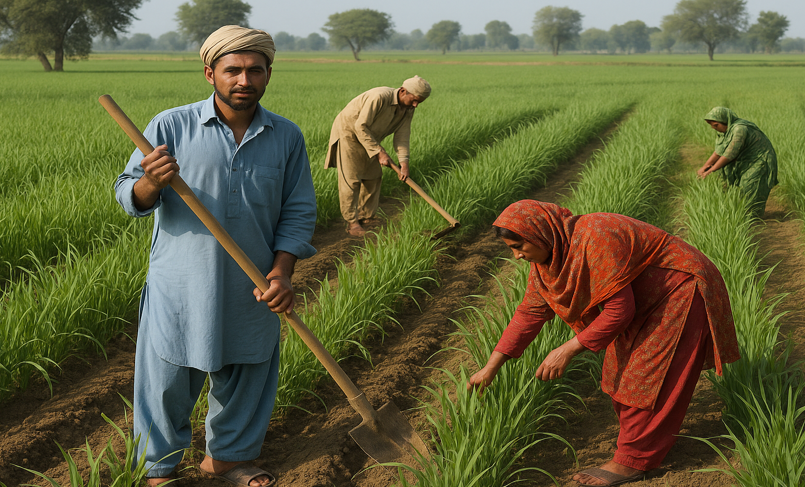Introduction
Pakistan’s agriculture sector stands as one of the most promising areas for investment in 2025 and beyond. With fertile land, diverse climate, and a growing demand for food exports, the country provides countless opportunities for both local and foreign investors. From modern farming practices to agribusiness ventures, Pakistan’s agriculture industry offers sustainable growth and long-term profitability.
Importance of Agriculture in Pakistan’s Economy
Agriculture contributes nearly 20% to Pakistan’s GDP and employs over 40% of the workforce. The sector is not only the backbone of the economy but also the foundation of food security. Investors who step into this sector gain access to a massive market with increasing domestic and international demand.
Modern Farming: Transforming Traditional Agriculture
Use of Technology in Farming
Gone are the days when farming in Pakistan relied solely on manual labor. Today, modern farming techniques such as precision agriculture, hydroponics, and drip irrigation are revolutionizing crop production. Investors can benefit by funding smart farming tools, agri-tech startups, and machinery leasing services.
High-Value Crops
Crops like fruits, vegetables, herbs, and oilseeds are generating higher profit margins compared to traditional crops. These high-value products are in demand both in local markets and in international exports.

Agribusiness: Profitable Ventures for Investors
Dairy and Livestock Farming
Pakistan is one of the world’s top producers of milk. Investment in dairy processing plants, cattle farming, and meat exports can yield high returns. Modern facilities for cold storage and packaging further enhance profitability.
Food Processing Industry
The global demand for processed foods, packaged items, and ready-to-eat meals is rising. By investing in food processing units, investors can capture export markets in the Middle East, Europe, and Central Asia.
Organic Farming: A Growing Global Demand
Consumers around the world are shifting toward organic food due to health concerns. Pakistan’s fertile land and low use of chemicals in certain regions create perfect conditions for organic farming. Investors can establish organic farms, certification bodies, and export networks to tap into this billion-dollar industry.
Export Potential: Reaching Global Markets
Pakistan exports rice, mangoes, kinnows, and cotton to multiple countries. However, the full potential of agricultural exports is still untapped. By investing in logistics, warehousing, cold chains, and export quality standards, businesses can expand Pakistan’s presence in international markets and generate higher foreign exchange.
Government Support for Agriculture Investment
The Government of Pakistan is actively encouraging investment in agriculture by offering tax incentives, subsidies, and special financing schemes. Investors can also benefit from projects linked to the China-Pakistan Economic Corridor (CPEC), which improves connectivity and reduces export costs.
Key Areas for Agriculture Investment in Pakistan
- Modern farming and smart agriculture technology
- Dairy and livestock production
- Food processing and value addition
- Organic farming and eco-friendly agriculture
- Export infrastructure and cold storage chains
Conclusion
Pakistan’s agriculture sector is truly a goldmine for investors. With government support, rising global demand, and innovative farming techniques, the sector promises long-term growth and profitability. Whether it is modern farming, agribusiness ventures, or organic food exports, investing in Pakistan’s agriculture offers unmatched opportunities for sustainable returns.




